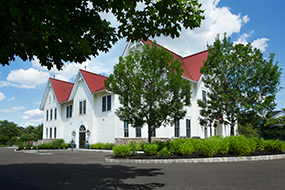How Adverse Childhood Experiences Can Cause Brain Injury
Posted By: Tony Baratta | January 19th, 2017

It’s commonplace to learn that persons convicted of criminal acts experienced trauma in childhood. These facts are usually raised in sentencing hearings by criminal defense lawyers trying to help explain, not justify, the criminal act, and to ask the court that help be offered to the convicted criminal to address the demons haunting him. Or, you might think, it’s defense lawyer hogwash attempting to avoid accountability.
As an advocate for brain injured victims, I have written numerous blogs about how an injury to the brain causes changes in behavior. But can trauma in childhood also cause changes or even damage to the brain?
It’s a question I am asked to confront when representing children harmed by instances of sexual assault or physical harm from persons who are in a caretaking role. How can I explain what harm is experienced by these children in a way that a jury can understand?
A very good friend recently suggested I read a book called “Hillbilly Elegy” by J.D. Vance. It’s a rise from the ashes story of a young man born in Kentucky, raised more by his grandparents than by his drug addicted single mother, who goes on to graduate from Yale Law School where he is Editor of the Law Review, and becomes a successful attorney and author, given his book is a best seller. Despite his outward success, he described struggling daily to overcome his angry, emotional and argumentative reactions in his personal relationships. He came to realize, through his efforts in dealing with these struggles, that his brain had become hard wired to react due to his adverse childhood experiences, or ACEs. He cites studies which identify the most common ACEs as follows:
- being sworn at, insulted, or humiliated by parents
- being pushed, grabbed, or having something thrown at you
- feeling that your family didn’t support each other
- having parents who are separated or divorced
- living with an alcoholic or drug abusing parent
- living with someone who is depressed or attempted suicide
- watching a loved one physically abused
Studies show that children who experience multiple ACEs are more likely to struggle with anxiety and depression because constant stress actually changes the chemistry of the brain. Stress is created by a physiologic response to adrenaline and other hormones flooding our system in response to a stimulus.
This is the classic fight or flight response developed to help us avoid getting eaten by lions or avoiding terrible diseases. But if the fight or flight response is constant, it can be very destructive. Mr. Vance quotes a Dr. Nadine Burke Harris who explained the response works well “if you’re in a forest and there’s a bear. The problem is when the bear comes home from the bar every night.”
Harvard researchers are quoted by Mr. Vance as explaining that “significant stress in early childhood results in hyper-responsive or chronically activated physiologic stress response.” Therefore, the part of the brain that deals with stress and conflict is always activated, and these people are constantly ready to fight or flee because there is constant exposure to the bear. The person becomes hard wired for conflict, even if there is no conflict.
No adult can be excused for their own bad behavior due to childhood trauma. Every adult is accountable, fully, for their own bad conduct. We all know that how our children are raised plays a large role in what they will become. Childhood trauma changes the brain. When a child experiences adverse childhood experiences, there is a real physical injury caused to the brain which Is permanent.
About the Author
Anthony J. Baratta (Tony) is a trial attorney. He has tried more than 50 cases to Juries in State and Federal Courts and has litigated thousands of personal injury and medical malpractice cases in his 30-year career. Tony is the founding partner of Baratta, Russell, & Baratta and an active board member of the Pennsylvania Brain Injury Association (BPIA). Tony is also on the board for the Philadelphia VIP and performs pro bono work for the Laurel House, a non-profit for victims of domestic abuse. In addition, Tony is a member of the Million Dollar Advocates Forum for trial attorneys, voted one of Philadelphia’s Super Lawyers for the past 14 years, and a 2018 recipient of the First Judicial District Pro Bono Award for the Civil Trial Division.

